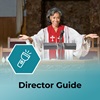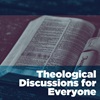I have a number of different gift assessment tools at my disposal. I have used an eight-week curriculum that utilizes video, overheads, a nice book, and a leader's guide in classes and small groups. This curriculum also involves consultations with trained consultants after the course is over. Our church has used this course in the past and we have developed a database of people's gifts and passions and personal styles from it.
I also have a simple spiritual gifts assessment computer program that asks a list of questions and then spits out what spiritual gifts God has given you. You can find electronic versions of these assessments on the web; you can even take the assessment itself on some web sites.
Plenty of programs and curricula and other resources have been developed to help us ascertain and then use our gifts.
But I have a couple questions.
- What did Christians do before spiritual gift inventories were invented?
- How did receiving a gift become such a hassle and technological undertaking?
- If God designed His church as a body in which each part carries out its role using the gifts God has given, then why is it not more natural for us to understand and utilize our gifts in that context?
I don't have all the answers, but I'll give you a few of my own opinions, for what they are worth.
Part of the reason, I believe, is that many churches do not really function like the Body of Christ as we were intended. The New Testament reveals church as community where Christians love one another deeply, care for and meet one another's needs, encourage one another daily, spur one another on to love and good deeds, bear one another's burdens, confess our sins to one another and pray for each other so that we may be healed, submit to one another, build one another up, offer hospitality to one another, and on and on. God designed the church so that all the believers would be together and have everything in common. We would sell our possessions and goods, and give to anyone in need. We would meet every day in public places and in one another's homes, praising God, and seeing the world around us look on favor on us, and God would add to our numbers daily those who are being saved.
Does your church look like the one described above? Does your small group look like the Body of Christ as Jesus intended it?
I believe wholeheartedly that the closer we get to the design, the more natural it will be for us to ascertain, understand, and begin to utilize the gifts God has provided for His body to function efficiently and fruitfully. The context for ministry is community - authentic, life-giving, transformational, others-first, sacrificial community where people connect with a few others, who all connect with God, and live the Christian life together. When the context is in place, ministry, and the gifts for that ministry, come naturally.
Small groups, of course, are the setting in which true community can best occur. As small groups meet together and carry out the functions listed above, and especially where these groups are doers of the Word, and not merely listeners who are deceiving themselves, people discover the gifts God has supernaturally given them.
On the other hand, when believers congregate to listen to someone else talk, or spend all their time in Bible study without doing what it says, when they are satisfied with head knowledge, which puffs up, rather than love, which builds up, they have no context in which God can show them what gifts He has provided them.
It is in the Body of Christ in community and at work that we discern our gifts. When I am connected to and serving with a group of people in community, I don't have to fill in the ovals or check radio buttons to come to understand that God has given me a gift for leadership for example. When my wife is in a place where she is available to other people and can see their needs and hurts, it becomes obvious to her and others that she has the gift of mercy. When a group is involved in sharing the gospel together, we won't need a test to figure out who has the gifts of evangelism or faith. When a member or friend has a need, it will be easy to pick out who has gifts of giving and craftsmanship.
Surveys and assessments can be useful as tools in the church, especially because we fall so short of the ideal that God intended and designed for His church. But if we, as small group leaders and coaches and pastors, could simply get people into authentic, serving community, I believe these tools will become superfluous.
God has given us the gift of community - with Him and one another. He gives us many other gifts as well, including life, eternal life, the church, and spiritual gifts. Every one of them exists within His gift of community. All we need to do is accept it.









